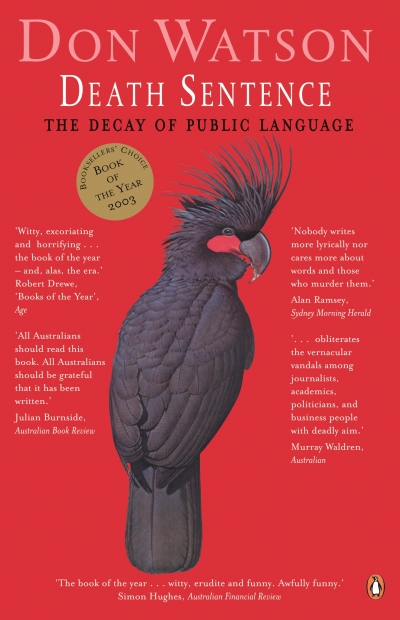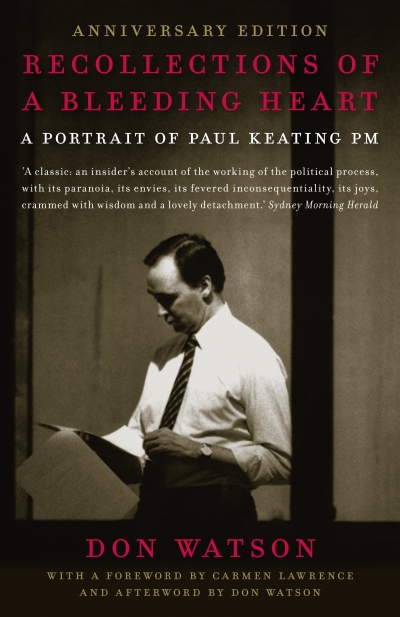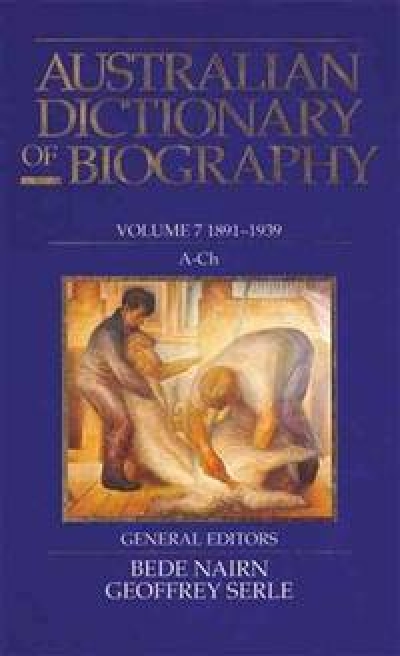Don Watson
Death Sentence: The decay of public language by Don Watson
by Julian Burnside •
Recollections of a Bleeding Heart: A portrait of Paul Keating PM by Don Watson
by Neal Blewett •
The Scots Abroad: Labour, capital, enterprise 1750–1914 edited by R.A. Cage
by Don Watson •
The Australian Dictionary of Biography Vol 7 1891–1939, A–Ch edited by Bede Nairn and Geoffrey Serle
by Don Watson •





